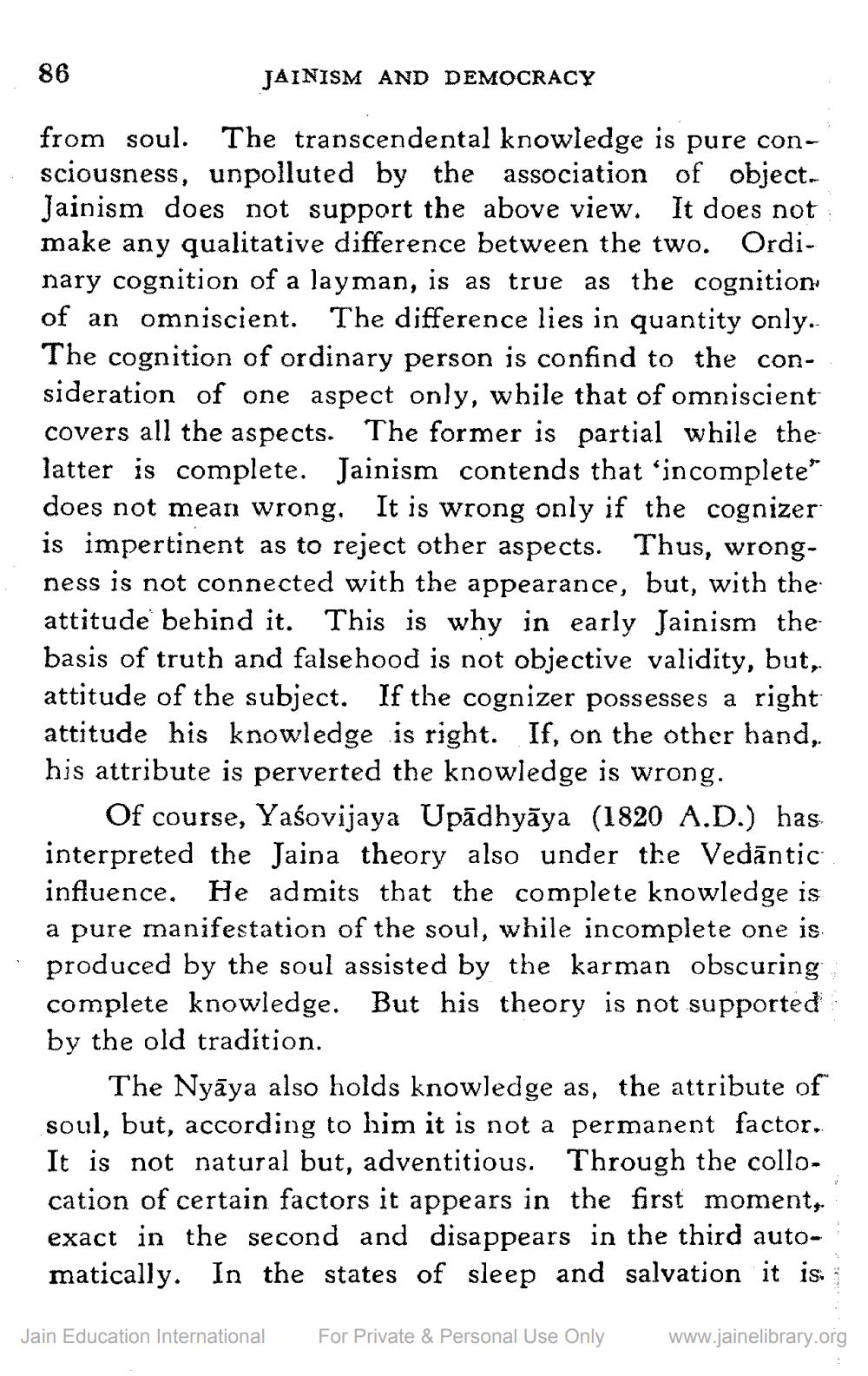________________
86
JAINISM AND DEMOCRACY
from soul. The transcendental knowledge is pure consciousness, unpolluted by the association of object. Jainism does not support the above view. It does not make any qualitative difference between the two. Ordinary cognition of a layman, is as true as the cognition of an omniscient. The difference lies in quantity only. The cognition of ordinary person is confind to the consideration of one aspect only, while that of omniscient covers all the aspects. The former is partial while the latter is complete. Jainism contends that “incomplete" does not mean wrong. It is wrong only if the cognizer is impertinent as to reject other aspects. Thus, wrongness is not connected with the appearance, but, with the attitude behind it. This is why in early Jainism the basis of truth and falsehood is not objective validity, but, attitude of the subject. If the cognizer possesses a right attitude his knowledge is right. If, on the other hand, his attribute is perverted the knowledge is wrong.
Of course, Yaśovijaya Upādhyāya (1820 A.D.) has interpreted the Jaina theory also under the Vedāntic influence. He admits that the complete knowledge is a pure manifestation of the soul, while incomplete one is produced by the soul assisted by the karman obscuring complete knowledge. But his theory is not supported by the old tradition.
The Nyāya also holds knowledge as, the attribute of soul, but, according to him it is not a permanent factor. It is not natural but, adventitious. Through the collocation of certain factors it appears in the first moment, exact in the second and disappears in the third automatically. In the states of sleep and salvation it is
Jain Education International
For Private & Personal Use Only
www.jainelibrary.org




